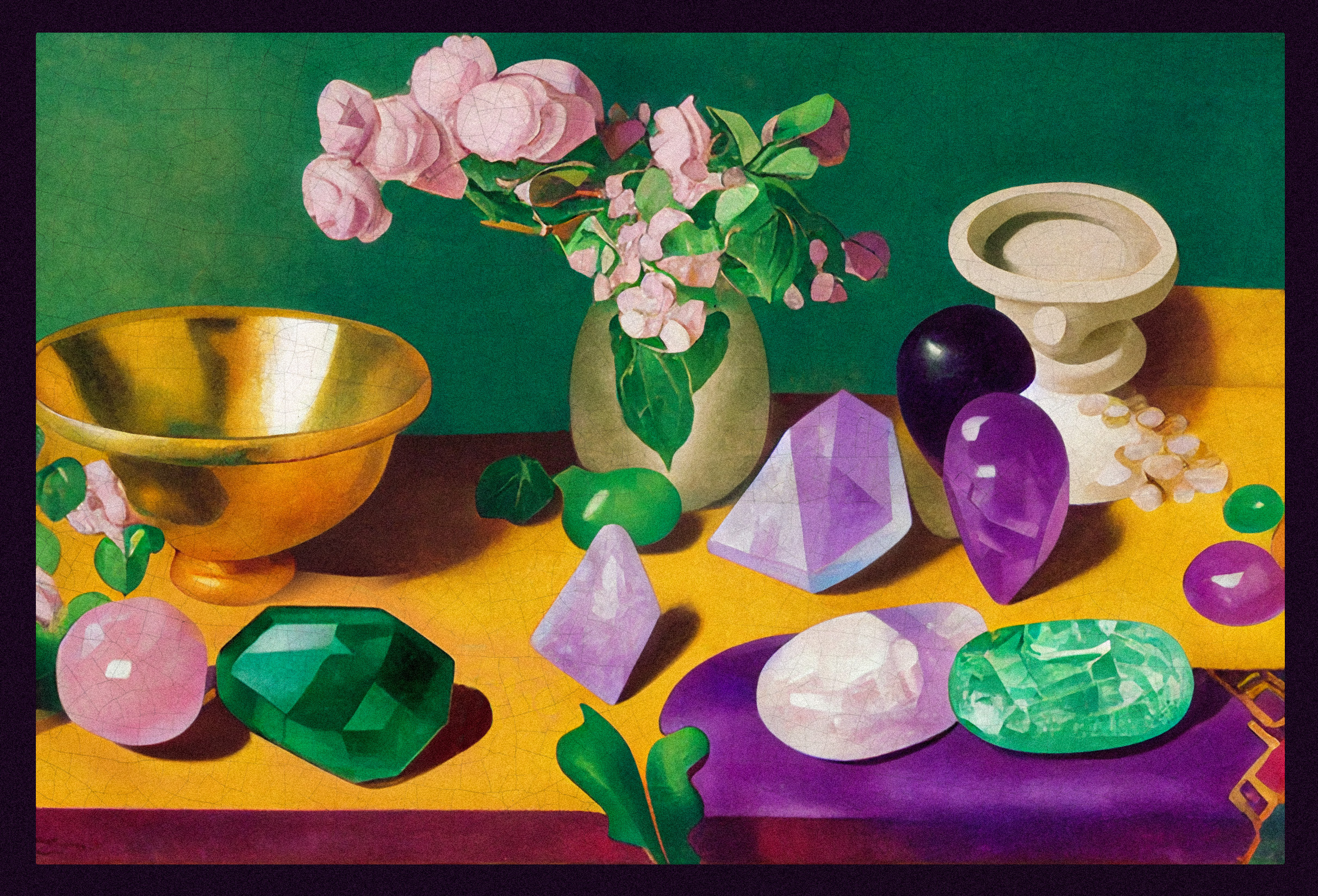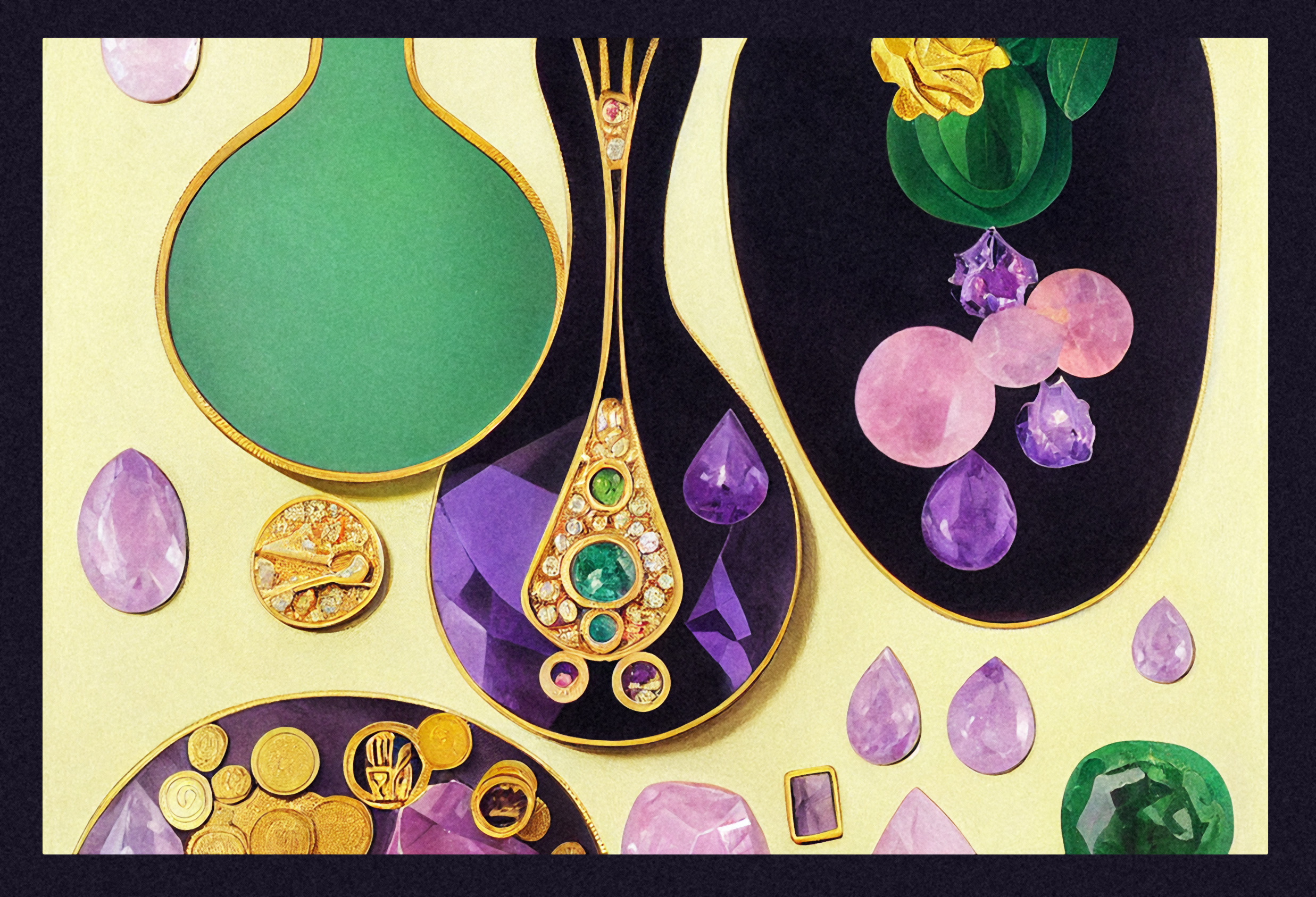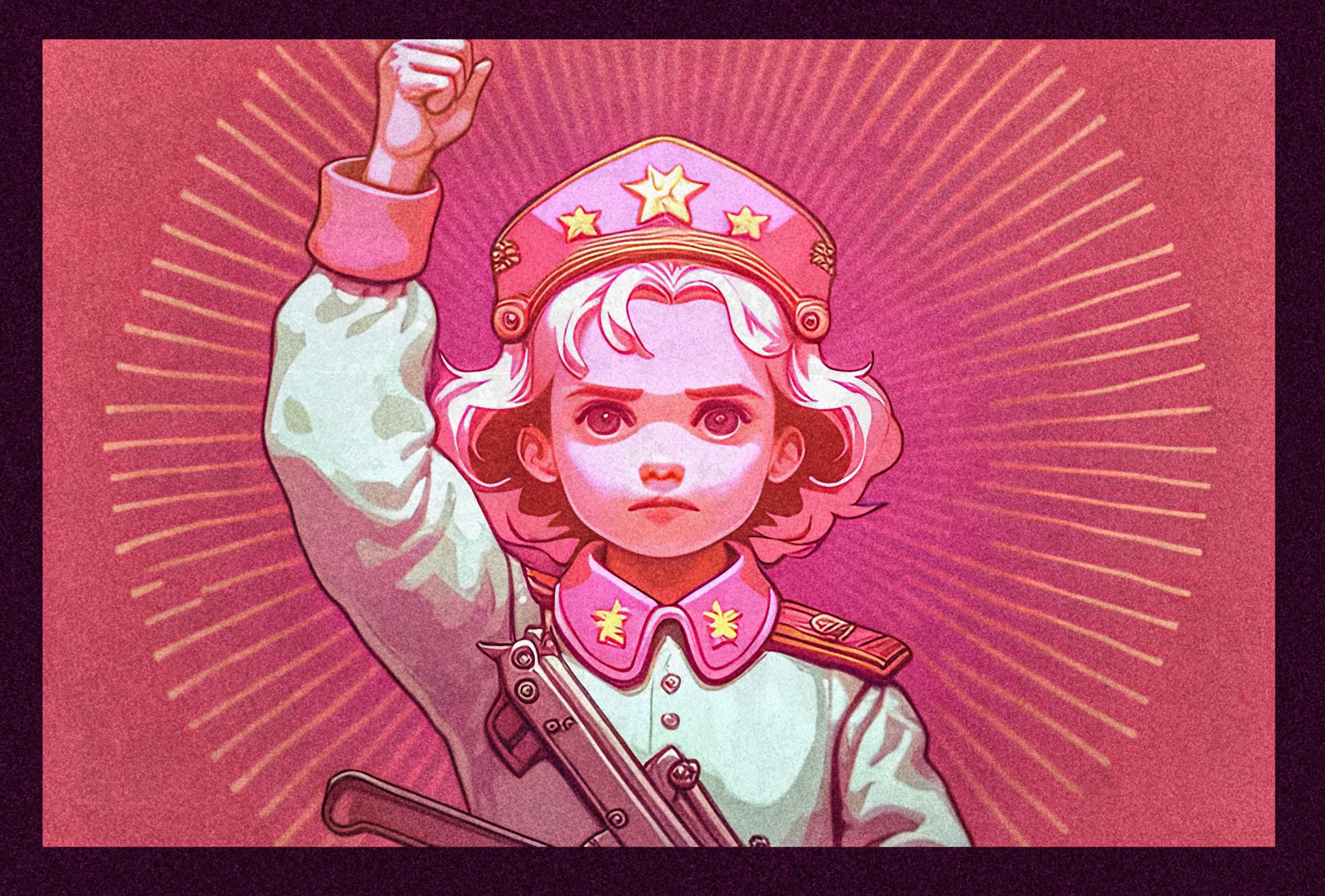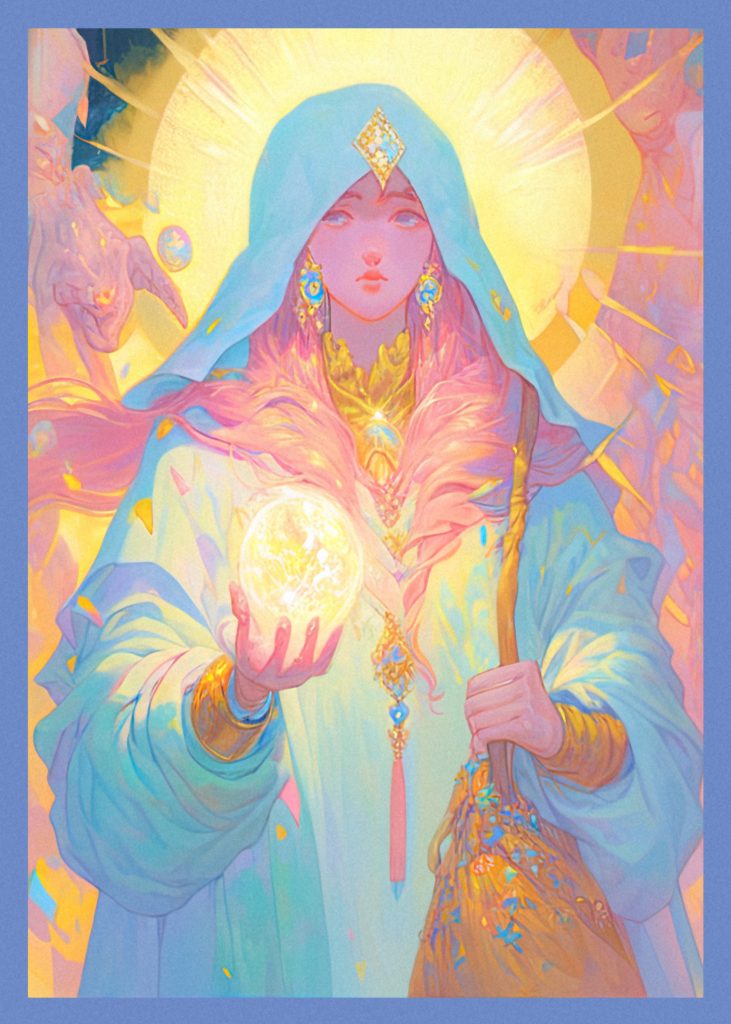
[Reading time : 20 min]
1. Introduction
2. The Moneyed Mind
3. None Too Human
4. Molecular Capitalism
5. Overcoming Humanity
Introduction
My thesis for this essay is that capitalism is fundamental to thought itself, rather than a contingent oddity we can slide past.
To make my point, I’d like to begin with Ian Wright’s article on Capital as a Real God, which makes the case that capital has become an ‘autonomous supra-individual control system‘ that reigns over us.
With different words, this is a familiar and common idea; we’re all subordinate to the inexorable power of capitalism, which dehumanizes people by treating them like replaceable cogs in a vast, impersonal machine.
As Engels famously put it—’man proposes and God disposes’, and by God he meant ‘the alien domination of the capitalist mode of production’.
My problem with this perspective is not so much that it’s wrong, but that its narrow target obscures the broader psychological implications of its insight.
Consider this phrase from Marx:
Circulation becomes the great social retort into which everything is thrown, to come out again as the money crystal. Nothing is immune from this alchemy, the bones of the saints cannot withstand it.
This poetic description of the social process underlying capital is helpful because it’s easy to understand, and includes both an explicit criticism and a subtler one; capitalism dissolves the sacred aspect of life, but it does so through alchemy rather than chemistry—in other words, using a technique which is theoretically incomplete, confused, semi-mystical and pre-scientific.
To extend the metaphor, think of capitalism as a fearsome wizard that transforms the world into a series of relative numerical values. The Capital Wizard laughs when we tell him that apples and oranges can’t be compared; he unceremoniously chucks them into his retort and dares to give us a specific equivalence—apples are exactly 1.18x more valuable than oranges in your area. Unprompted, he continues—9.7 kilos of oranges is equivalent to a haircut at a salon. To non-wizards like you or me, this is bizarre—where do these numbers come from?
There are many questions we have for the Capital Wizard, but the answer is usually frustratingly simplistic: that’s what the retort says. Or—that’s what the market dictates. Whether it’s some complicated political manipulation or just supply & demand, a price is a mysterious phenomenon that’s clearly defined yet always in flux.
After all, to have prices for everything means to stand above creation, judge its value and then consider its perceived relative value among all people, in accord with changing circumstances. This is why Muhammad believed that prices are ultimately the domain of God.
But my own mind likes to put on the robes of the Capital Wizard and play God in precisely this way; I have internal scales which weigh the value of all ideas, things, people and experiences. All of these external substances are gathered inside the fleshy pink retort in my skull, which flexibly ranks and compares all of creation, producing an organized hierarchy of values. And I always want more—the taste of valuing makes me want to expand my valuation to greater detail and scope.
I don’t have precise equivalences; I couldn’t tell you the exact exchange rate between forest hikes and funny videos, although I’m certain that there is one.
It’s not as if precise numerical values are encouraged outside of the market, as they tend to be an uncomfortable topic; notice how common it is to remove pricetags from gifts, and neglect to mention how much a present costs.
This is because of the ominous implications of the market on human relationships—a dollar’s a dollar no matter who’s buying and selling. In the market, everything and everyone is an interchangeable element that swishes around in the wizard’s retort and pops out again as the money crystal.
Gifts are supposed to be the exact opposite; they’re symbols of a unique bond rather than something that can be traded for a set of paper bills at a flea market.
This is why the commodification of our lives can be so frightening—the Capital Wizard disassembles our food, each second of our time, every part of our body, our actions, our very thoughts, and callously transforms them into a series of barely recognizable scribbles that we call numbers.
And sure, capitalism is excellent at producing useful things efficiently, by organizing time, things and people into clear numerical values—but it’s lost sight of how nice it is to have a chat with a friend or spend an afternoon reading.
Right?
Well, not so fast!

The Moneyed Mind
We have to slow down, reverse time, even—back to the pre-alchemical shaman of capitalist wizardry: Adam Smith. He believed that human beings have a ‘natural propensity to truck and barter‘, meaning that market economies are outgrowths of our minds.
Governments, in his mind, have a limited role—guaranteeing the money supply—so it’s best to keep them out of the market as much as possible. In his excellent book on the history of debt, Graeber spends a lot of time explaining how this is backwards; states create markets (as we understand them), and market economies can be actively detrimental to the flourishing of the community.
However, we’re not out of the clear yet. Nietzsche argues that making prices, assessing value and determining equivalences is thinking itself. After all, rationality is about ratios—contrasting and comparing A to B. The oldest relationship that people had with each other was that of seller and buyer, creditor and debtor, measuring one individual against another:
Here the oldest form of astuteness was bred; here, too, we can assume are the first beginnings of man’s pride, his feeling of pre-eminence in relation to other animals. Perhaps our word “man” (manas) continues to express directly something of this feeling of the self: the human being describes himself as a being which assesses values, which values and measures, as the “inherently calculating animal.”
In contrast to Smith, Nietzsche argues that there was no way to cancel out these transactions and come to some clean and final parity. Such fundamental psychological and cross-generational evaluations would transform and grow over time into vast, abstract entities, eventually giving birth to morality and gods; the German word schuld means both ‘debt’ and ‘guilt’.
Nietzsche even suggests that the repayment of a debt is closely tied to the value of hurting other people—why else would a mob boss consider a debt repaid if he cuts off the debtor’s fingers or breaks his kneecaps? He claimed that old law codes which tabulated injuries like a gouged eye were meant to determine how much suffering could be inflicted on the debtor or the perpetrator.
As Mladen Dolar puts it, one always pawns a pound of flesh when contracting a debt; this wasn’t just common knowledge in the ancient world, but even formally implemented in the first document of Roman law in the 5th century BC, which stated: ‘qui non habet in aere, luat in corpore‘, meaning ‘he who has no money to pay, will have it taken from their body‘. This would make perfect sense if there is a sort of recompense in inflicting pain on the body of the transgressor—the debtor.
Graeber doesn’t buy this though—he thinks that Nietzsche is trolling us by taking ‘ordinary bourgeois assumptions‘ and stretching them out to shock people. To learn what people are like, he suggests, we need to de-bourgeoify our viewpoint by studying non-Western cultures.
Graeber brings up an example from the Inuit living in Greenland as quoted by Peter Freuchen in his Book of the Eskimo:
After coming home hungry from an unsuccessful walrus-hunting expedition, [Peter] found one of the successful hunters dropping off several hundred pounds of meat. He thanked him profusely. The man objected indignantly: “Up in our country we are human!” said the hunter. “And since we are human we help each other. We don’t like to hear anybody say thanks for that. What I get today you may get tomorrow. Up here we say that by gifts one makes slaves and by whips one makes dogs.”
Unlike stinky meanie bourgeois Westerners, the Inuit steadfastly refuse to weigh debits and credits, which Graeber explains isn’t unique—we can find it in ‘millions of similar egalitarian spirits throughout history‘.
Yes, they have the ability to assess the value of people, things, labour, and time, but because they love help and charity so much, they’re going to keep that genie tucked away in its bottle.
The egalitarian spirit sounds nice when it’s framed in this way; we’re all human, let’s help each other out when we can. We’re all in this together—some may be lounging in a pool, others may be working 14 hour shifts at a hospital, but we’re all in this together. It’s especially nice if you’re a crappy hunter and a weak person in general; hey, what’s the use of keeping track of who’s stronger and better, we’re all pretty much the same, right?
But what would happen if Peter really tried his luck?
What if he sponged off of the village for years on end without giving anything back? If anyone frowns, he can tell them: what I get today, you may get tomorrow, or in a couple of years, who knows—I’ll help you at my own pace.
Graeber gives us a hint by way of a story from a Maori village, where some lazy guy realized that social custom forced everyone to feed him for free because technically, they’re all buddies—they’re all human.
The way they dealt with it was interesting—they sat him down and reminded him of the necessity of community, the joy of giving and the value of helping others. After many hours of this, the lazy man was so transformed that in five years, he became the most hard-working and generous man in the whole village.
Just kidding. They killed him. I’m guessing they had a food-related one-liner before they stabbed him to death—
This meal’s to die for!
It’s uncommon for people to be so stupid as to try and mooch off their neighbors as long as the Maori moocher did. But the point is that those debits and credits are being tabulated in the moneyed mind, whether they admit it or not, with the value of individual community members fluctuating as if in a numerical index.

None Too Human
The crux of the Inuit hunter’s worldview is the word ‘human‘. Since he is human and he is surrounded by other humans, he can expect that anybody in this group of humans will be predictably helpful—since that is what characterizes humans.
‘Human‘ is therefore a conditional category with a prescribed set of behaviors, and any deviation is a threat to social stability, warranting punishment of some kind or another, perhaps a strong rebuke like in Peter’s case, or an execution like case of the Maori moocher.
If all ‘humans‘ are alike, then egalitarian societies treat people the same way we treat dollars; we assume each dollar will function identically to another, and there’s no issue in aggregating them since they all merge seamlessly into a harmonious whole like a big wad of cash.
At least, that’s how it’s supposed to work; in practice, I suspect there’s jealousy, resentment, longing for freedom and leisure, competition for attractive mates, jockeying for status, and so on.
But the theory is necessary because they’re forced to get along with each other to get by, so they might as well operate under the idea that they’re all similar and share the same fate.
The Inuit didn’t exactly think of everybody as ‘human‘, though. As Renee Fossett explains in her book on the Inuit, ‘all Eskimo and Inuit societies have shown intense fear of strangers, who were always assumed to be enemies.’ Indeed, the very fact that you can lose your status as ‘human‘ depending on your behaviour implies that you can have it revoked to the point where you shift into sub-human—a dog that gets whipped, or more broadly, a malicious force of nature that must be annihilated.
Fossett also goes out of her way to explain that the Inuit practice of killing infants and old people (infanticide and senicide) is actually a logical and socially responsible act that we shouldn’t criticize—because that’s their culture.
Although she explains that old people being left to die was ‘tragically frequent‘, this wasn’t neglect or abandonment, because the weak members of the group were legitimately slowing everyone else down, and speed mattered for the survival of the community. If resources were available for them, then there would be no problem, but if times were tough, we’d learn that some people are a little more human than others.
In the Inuit religion, the physical body is an empty shell at birth, lacking an immortal soul, so babies aren’t human right after being born. Boys are considered human after three days, although girls need to wait five days; it’s less common to kill boys since good hunters are essential for the group’s survival. If tough decisions need to be made in those first few days, then technically, Fossett informs us, it’s not really infanticide, because they weren’t people to begin with. I’m sure you can see parallels between them and our own difficulties in establishing where humans begin.
Some old people choose to kill themselves to ease the burden (e.g., walking into a blizzard by themselves), and Fossett explains that this technically isn’t a a big deal because in their eyes, it’s just the immortal soul leaving the shell behind. It seems confusing to me to worry about survival in general if you believe in an immortal soul, but as Fossett begrudgingly admits, their beliefs make their harsh lives a little more bearable.
They’re hardly unique in this approach. As Manvir Singh pointed out in his essay on primitive communism, tribes can show incredible solidarity on the surface while at the same time hiding a brutal underbelly.
Consider the Aché, a hunter-gratherer tribe from Paraguay: hunters drop an animal at camp, the butcher prepares portions for each family, and another person goes around distributing it. The wives and children of the hunters receive no more than anyone else. When someone breaks their hip and can’t walk for three months, everyone bands together to help him. The egalitarian spirit come to life!
But if someone became a long-term burden, they’re no longer ‘human‘ since they’re effectively a perpetual moocher. Among the no-longer-human tribe members who were killed, abandoned and buried were: ‘widows, sick people, a blind woman, an infant born too soon, a boy with a paralysed hand, a child who was ‘funny looking’,’ and ‘ a girl with bad haemorrhoids.‘
Molecular Capitalism
Even our own DNA chimes in to highlight the point of our expendability.
If you were to look at a lowly single-celled paramecium, you’d see a big blob called the macronucleus and a tiny blob called the micronucleus. The macronucleus is the bit helps keep everything running on a regular basis, whereas the micronucleus is made for swapping genes with other paramecia.
Once the gene shuffle is complete, the paramecium destroys the old macronucleus and programs a new one with the micronucleus. Wiping out their macronucleus after they’ve reshuffled their genes isn’t a big deal for these little creatures.
But we’ve inherited the same structure—our version of micronuclei is our germ cells (sperm & eggs) while our macronuclei is pretty much everything else—brains, eyes, hands, mouths, bellies, etcetera. Even though paramecia can reproduce asexually, they have a senescence clock programmed into them which tells them to self-destruct if they haven’t had a genetic re-shuffling after about 200 cell divisions.
We have something similar, although that clock is programmed at birth; our macronuclei are instructed to keep us healthy enough to get to sexual maturity and shuffle around our micronuclei, after which our macronuclei fall apart by design. Nature treats our most valued parts of ourselves as a means to an end, and is perfectly willing to discard it once that business is done. All bodies and resources are thrown into a giant retort of infinite reproduction—very capitalistic!

Overcoming Humanity
While it sounds strange to demote someone from being human, perhaps even cruel, it makes intuitive sense—if someone tries to kidnap your kid, you don’t just sit back and watch because it would be against the kidnapper’s ‘human rights‘ to have a finger laid on him. As the saying goes—fornicate around and find out.
Social groups assign an individual their value based on a standard of behaviour, which means that all its muddy members are thrown into the social retort to come out again as a human crystal—what’s commonly called ‘being a good person‘.
Engaging in predictable, altruistic and self-sacrificing behaviour increases your standing and brings you closer to clear human crystal—let’s call it 100HC. The average self-centered person might be hovering at around 70-90, and their good deed for the day brings them closer to 100.
But there’s competition for maxing out past 100 into even purer forms of crystal; I’ll never forget the battle at church over who gets the privilege of handing out bread and soup for the needy.
The fight for the purest crystal is also waged in the ideological space; the right phrases and ideas must be expressed in order to effectively remain ‘human‘. The wrong ideas can hollow out your crystal value and place you into the enemy category, leading to a variety of unpleasant consequences.
Lenin was clear on this matter, writing that capitalist behaviour and capitalist sympathy ought to be severely punished to the point that it will be effectively stamped out of society. Capitalists are basically moochers—what he calls parasites, sons of the wealthy, swindlers—although they can also betray the revolutionary struggle by having a moocher mind.
To eliminate moochers is one thing, but to wipe out moocher thoughts requires an extravagant level of punishment, and Lenin’s secret police did not disappoint in this matter; they roamed the streets in vehicles nicknamed Black Marias making secret arrests and bringing people to torture dungeons where they fulfilled every cruel fantasy known to mankind.
This wasn’t something new; the heat of the Russian social retort was cranked up to generate a harder, sharper form of human crystal called the New Soviet Person. There were tens of thousands of executions every year from 1917 to 1922, but as Lenin explained in 1920, ‘we did not hesitate to shoot thousands of people, and we shall not hesitate, and we shall save the country.’
Once you kill your first 100,000, it’s probably not too different than 10 million or 100 million; at this scale, people become interchangeable and expendable dollar bills, invested for the big payoff. Lenin even foreshadowed this by writing that out of 10,000 people who have read communist theory, 9,999 of them don’t understand it quite as well as he does.
To be a real Soviet Person meant—in large part—to submit to the will of Lenin, because he couldn’t resist donning the robes of the Capital Wizard. I can hear this idea vividly in Zizek’s voice—Lenin was the true capitalist. As always, some Soviet Persons are more Soviet Personish than others, and when tough decisions have to be made, it’s the top dogs that get to save their skin. Nevermind the fact that moocher thoughts will always be latent, leading to an endless reign of terror trying to weed out demons that have a happy home inside the prosecutors.
But it’s hard to avoid noticing that Lenin overcame his humanity by stepping into the role of a god; he stood outside of society and time, passing judgement on the value of hundreds of thousands of people, and finding that they would need to be sacrificed for an exceptionally rare crystal—the perfect human and the perfect future. For such a jewel, no sacrifice could be too great.

There are tens of thousands of monuments, sculptures, paintings, poems—all manner of artistic votives dedicated to this communist god of justice, and there will be many more; he confidently ranked his intelligence in the top 0.0001%, and was so passionately anti-moocher that he was willing to torture and kill people in droves just for thinking like a moocher. Those who worship this god may not have his powers, but they can partially dissolve themselves in his eternal glory and escape their expendable selves.
When Nietzsche talks about humanity as something to be overcome, he echoes Aristotle’s point that the only activities worthy of a free man are things like politics and philosophy; this is the realm of satiated gods that are perpetually hungry for more, choosing to transcend the mundane social machine and pass judgement on the value of all people throughout all time. Some of these politicians and philosophers really do have the practical effect of gods; they wield the power to change the fate of millions. It’s clear not everyone is just human.
Yet even the unfree men and women among us seem to have their heads tilted towards heaven. It’s exceptionally rare to find someone who genuinely feels that they’re an average person and not worthy of any special consideration—as Corrado Pensa puts it, they might instead feel they are especially common. Hundreds of thousands of years of the social retort has shaped our actual bodies into a more domesticated form, and yet it’s still a challenge to get everyone to return their shopping cart.
There are latent Lenins lurking in minds of millions, and everyday life is a constant battle between superhumans, superhuman wannabes and their groupies; as Zarathustra puts it, there is no God but gods. This wizardly war of valuing, measuring and calculating the price of the world is probably as old as consciousness itself, and one of the side effects is that some people will be worth less than others.
To value is to fight for the correct value in the face of misapprehension; just because the Capital Wizards in charge treat the natural world as worthless and consider toxic waste an acceptable externality doesn’t mean their scales are accurate. Remember, we’re dealing with alchemy here, not chemistry.
However, this fight of re-evaluation is more complicated than a half-baked Leninesque revenge fantasy. To become an adept wizard means fashioning your own retort and swishing your values around with solvents to create diamonds of such sparkling brilliance that they transcend millennia. As Zarathustra puts it:
“Why so hard!” – the kitchen coal once said to the diamond.
“Are we not close relatives?”
Why so soft? Oh my brothers, this I ask you: for are you not – my brothers?
Why so soft, so retiring and yielding? Why is there so much denying and denial in your hearts?
And so little destiny in your gazes?
And if you do not want to be destinies and inexorable, how could you triumph with me?
And if your hardness does not want to flash and undo and cut through, how could you one day create with me?
The creators are hard after all. And it must seem like bliss to you to press your hand upon millennia as if upon wax – – bliss to write upon the will of millennia as if upon bronze – harder than bronze, more noble than bronze. Only the most noble is perfectly hard. This new tablet, my brothers, I place above you: become hard!
When he talks about writing our will upon millennia, it reads as a childlike joy—wouldn’t it be oh-so-fun to dip our hands in paint and gesture on the walls of eternity?
Nietzsche did just that—through his impeccable arrangement of little symbols exuding passion, he has become an immortal figure that roams the globe in the minds of millions. Same goes for Marx; even though bones of the saints couldn’t withstand the alchemy of the retort, his own writing has effectively become priceless.
Maybe you decide to implement heaven on earth through the sacrifice of millions—or create a world of inequality where only the victors taste the spoils—or you decide to admire and perpetuate the crystalline forms of the social retort—or you choose to refine yourself according to your own standards and create timeless art—in all these choices, you cannot refuse the robes of the Capital Wizard.
To value one thing is to cast another as worth less—if this is the best essay you read today, then the other ones are worse. Our own bodies teach us that our value is transient, that we are expendable even if we’re in a Paraguayan jungle rather than a concrete one.
Accepting this fact—which is ultimately accepting our mortality—is only the first step, because the question remains open: what judgments wilt thou pass, my dear wizards? Wait, before you answer—make sure that you have a brilliant crystal in mind!
